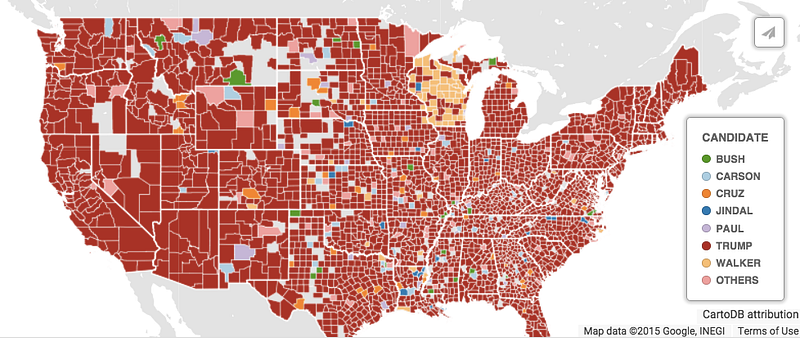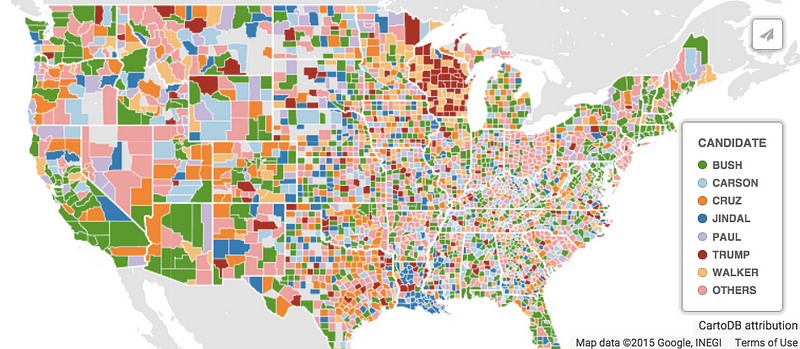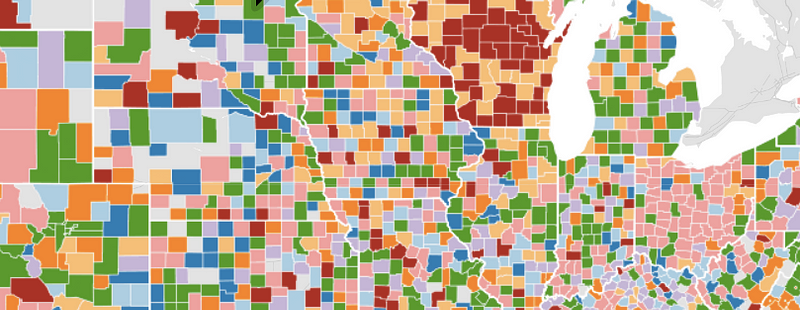(From The Ferenstein Wire) — The Republican field for president is massive, and conservative contenders are scrambling to stand out from the crowd. Polls tend to swing wildly from month-to-month, as new candidates enter the race or happen to get into a headline-making story.
Google search volume for each candidate might be a much more informative source of information, both because it is more detailed than a national poll and because it unearths a latent curiosity not found by directly asking voters who they like.
Google released a map of the most popular Republican candidates by county. At first blush, America is obsessed with “TRUMP!” Nearly every single county, save for Scott Walker’s own state of Wisconsin, is crawling with Donald Trump searches.
But, when you peel back the Trump-mania (because it may not represent long-lasting interest), the GOP field is a practical dead heat. No candidate in particular dominates Americans’ curiosity. Even though Jeb Bush is second in many polls, he doesn’t really dominate the map.
And, in the all-important battleground state of Iowa, there’s fascination with nearly every single candidate, even folks like Bobby Jindal, who don’t rank highly in the polls.
Lessons:
Beyond the immediate fascination with the upcoming elections, the Google Maps is useful for two reasons:
First, Google Trends is a powerful predictor of the future. It’s been known to predict stock market trends or hidden racial stereotypes for presidential candidates. Another fascinating study found that Google Trends could be used to predict that an extra 3 million people may have registered to vote, if the deadline were extended. Google’s tools are a powerful way to test a variety of hypotheses.
Second, anyone could make these maps and, therefore, make news. There are plenty of public datasets open to savvy developers. It’s just a matter of picking a hot topic and building some simple data visualization tools. So long as you unearth something unique or unexpected, there’s a decent shot that the public will respond with interest.
Readers can explore the Google Trends map here.
*For more stories like this, subscribe to the Ferenstein Wire newsletter here.




COMMENTS
Please let us know if you're having issues with commenting.